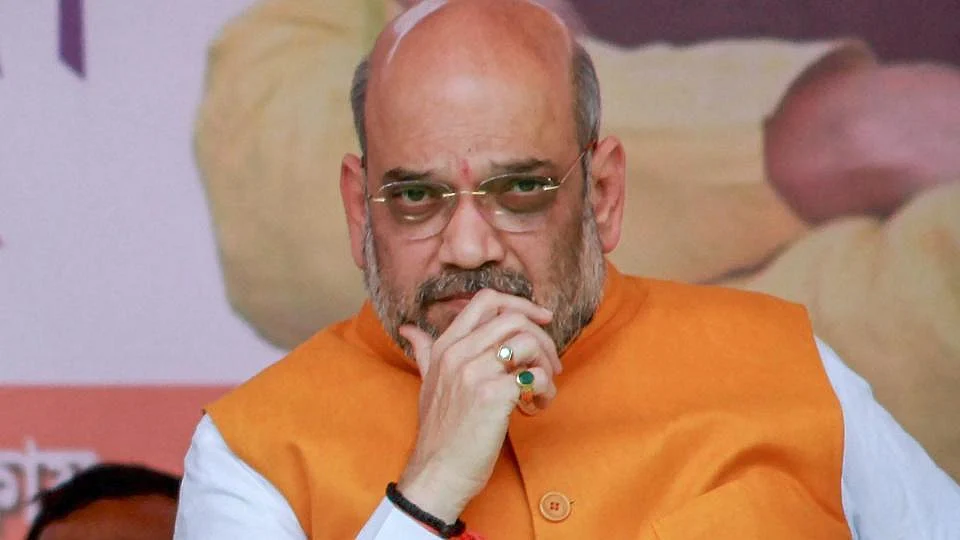What will be 'master strategist' Amit Shah's masterstroke in Uttar Pradesh?
The task of Amit Shah is cut out. He has to divert the 'forward-backward' narrative and ensure that smaller parties, regional parties, Independents and rebels from other parties join the fray

BJP followers in Uttar Pradesh are relieved at Amit Shah being handed over charge of party's poll campaign in Uttar Pradesh. Hailed by BJP and the 'Godi' media as a master strategist, a great organiser and a shrewd politician with his ear to the ground, a victory in the battleground state is assured, is what they believe.
The last several elections, however, have exposed the essential contours of his poll strategy, which involves spending huge sums of money, polarising voters on communal lines, manipulating the media, dividing the opposition and ensuring that anti-BJP votes get split at the booths. None of them really new strategies but BJP's war chest and heft of the organisation make them much more formidable.
If voters in Uttar Pradesh are indeed swayed by caste and the backward v/s forward narrative in mind, which is by no means certain at this point, there is no chance for the BJP to retain power in UP, with or without Amit Shah. There are also misgivings in BJP ranks about chief minister Yogi Adityanath’s ability to polarise the election in the middle of a realignment of the ‘forces of social justice.’ Which is why they are pinning their hope on both Narendra Modi and Amit Shah to bail the party out.
Amit Shah's strategy, like any other strategist, is to consolidate votes of people supporting the BJP and dividing the votes of people , the ' No BJP' voters, who would vote for anyone but the BJP. It is unlikely that BJP has many more options left because ever since 1952, the Sangh Parivar has seldom offered any alternative model of development or a futuristic plan of growth. Mobilising around 30% of the voters in their favour has always done the trick. But is that going to be enough in this year's election too is the question.
“BJP's strategy in the past has been to identify the seats with a history of close contests, manage or manipulate the deletion and addition of voters during revision of the voters' lists and ensure a split in opposition votes. The split is achieved by putting up multiple 'independent' candidates or by prodding smaller and newer political parties to jump into the fray. Funding rebels from opposition parties is another strategy that BJP has perfected," quips Shailendra, a social activist.
Western Uttar Pradesh in particular suits this politics of Amit Shah even more due to the volatile nature of people and the history of communal divide in the region.
In the 2017 elections, there were 104 assembly seats in Uttar Pradesh where the contest was close and victory margins were less than 15 thousand votes. There were half a dozen seats where the victory margin was between 100 and 500 votes.
Syed Khatoon of BSP lost to BJP’s Raghavendra Pratap by a margin of just 171 votes. Avatar Singh Bhadana of BJP won the Mirapur seat of Muzaffarnagar by just 193 votes defeating Liyaqat Ali of Samajwadi Party. In Mant (Mathura) Yogesh Chaudhay of RLD lost to BSP’s Shyam Sundar by just 432 votes. In Shrawasti, BJP’s Ram Phearn defeated Ramazan Ali of SP by 445 votes. Similarly, Sri Ram Sonkar of BJP triumphed over his rival by 538 votes in Mohammadabad Ghana (SC) and Devendra Kumar of BJP won by the margin of 695 votes in Rampur Maniharan (SC) of Saharanpur district. The split of opposition votes had bailed out BJP candidates in each of these cases. Masterstroke ?
Splitting opposition votes is essential for the BJP and the example of the 2012 election in Sikandrabad (Bulandshahar) assembly seat is a case in point. Bimla Singh Solanki of BJP garnered a total of 45,799 votes in these elections and managed to win by a margin of 123 votes then.
Saleem Akhtar Khan of BSP polled 45,676 votes and Badarul Islam of Samajwadi Party managed to secure 43,535 votes. The epic tale had another element. There were 20 more candidates in the fray, and they all polled 70,310 votes among them. Most of them, it was suspected, had been put up and financed by the BJP.
Mohammad Atiq, a journalist from Lucknow recalls a sting operation by a regional news channel during local body elections in 2005-06. Several candidates including from the RLD and now dismantled National Loktantrik Party (NLP) for the office of Mayor in Aligarh had admitted on camera that BJP had funded their entire campaign.
This time too, Amit Shah is banking heavily on vote splitting. Everywhere he goes, he manages to get a new party to field a candidate. Regional parties from other states with little base in UP are also likely to throw their hats in the ring. Above all, watch out for the number of Independent candidates in the fray in each constituency.
If Amit Shah manages to help BJP win in Uttar Pradesh in 2022, which is looking tough at the moment but with luck and division of votes which is not implausible either, Amit Shah will undoubtedly be hailed by the media for being a master strategist !
(The writer is an independent commentator)
Follow us on: Facebook, Twitter, Google News, Instagram
Join our official telegram channel (@nationalherald) and stay updated with the latest headlines
Published: 22 Jan 2022, 4:00 PM